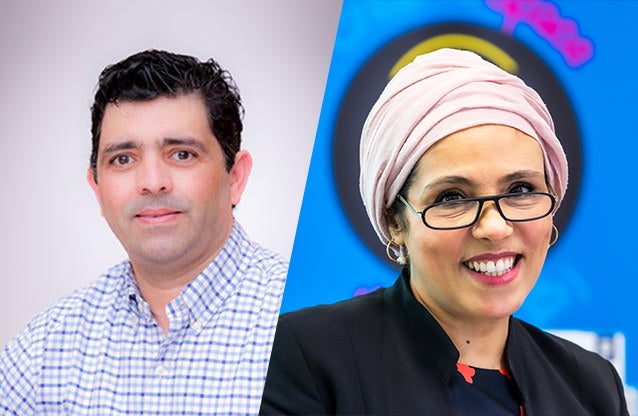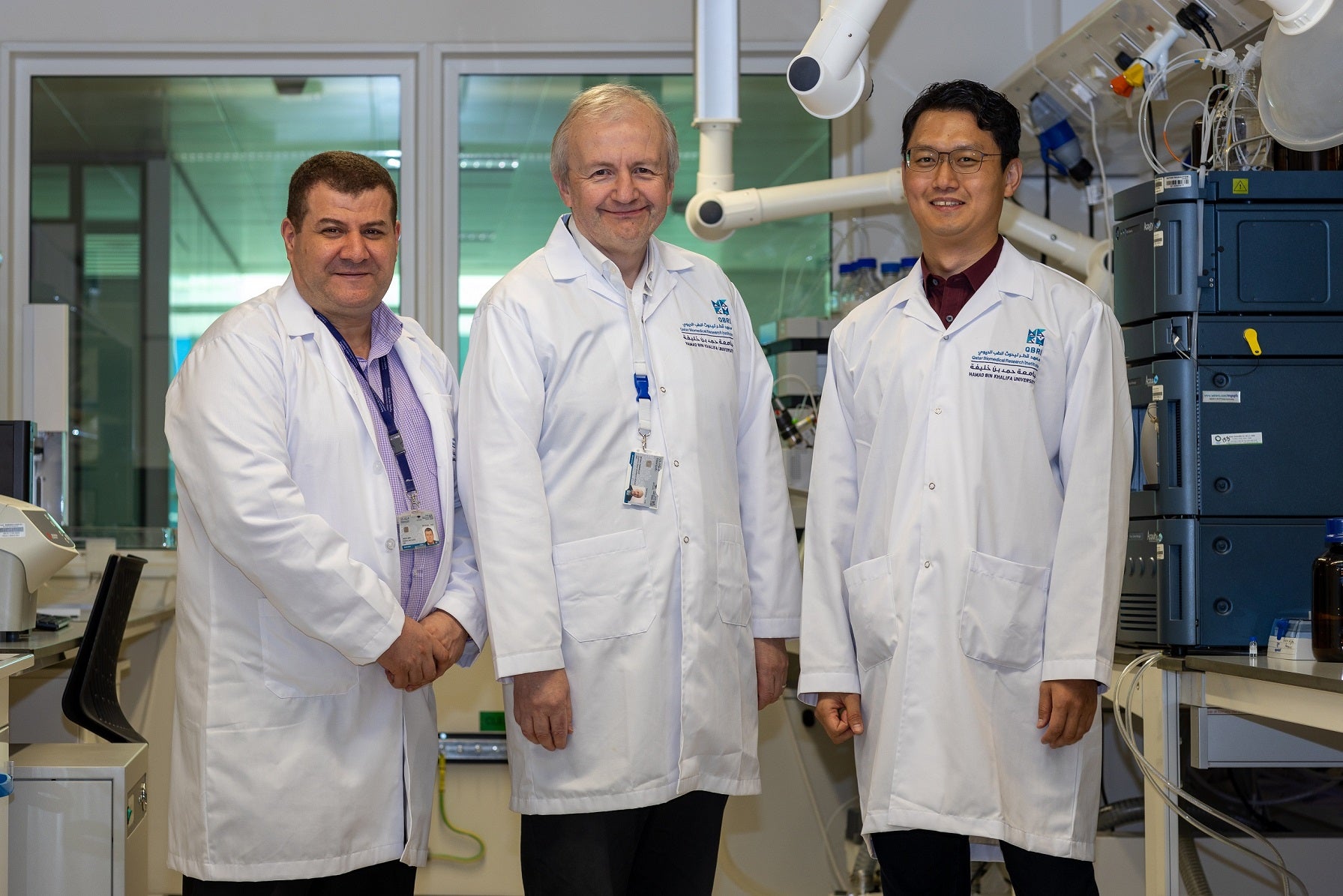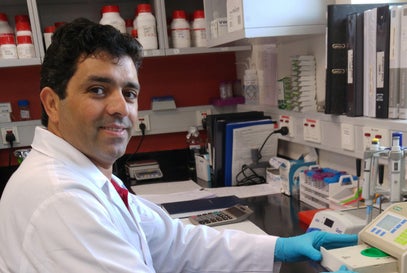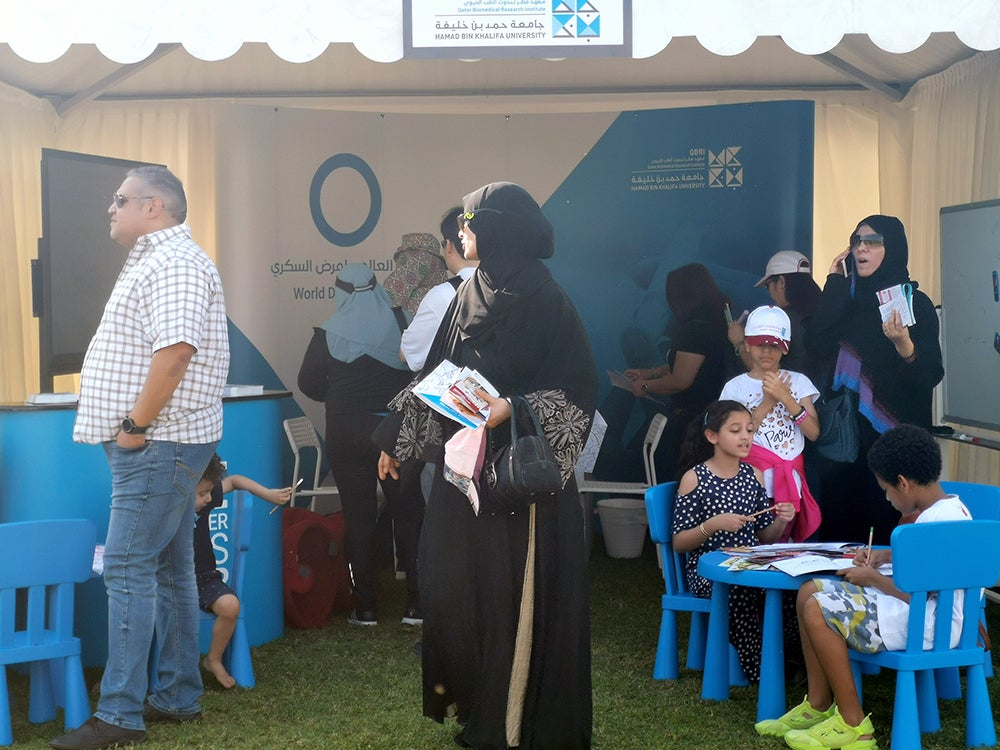Collaborative investigation focuses on two different datasets including Qatar specific data

Qatar Biomedical Research Institute (QBRI), part of Hamad Bin Khalifa University (HBKU), has published a first-of-its-kind study on population-specific transcriptomic profiles of breast tumors that includes patients from Qatar and highlights the importance of precision medicine in cancer at a population level.
Dr. Julie Decock, scientist at QBRI’s Translational Cancer and Immunity Center, led the research study with investigators from Sidra Medicine, HBKU’s Qatar Computing Research Institute, Hamad Medical Corporation, and Weill Cornell Medicine-Qatar, as well as international collaborators from the University of California. The paper titled “Ancestry-associated transcriptomic profiles of breast cancer in patients of African, Arab, and European ancestry” was published in the Nature partner journal, npj Breast Cancer.
The team investigated transcriptomic data from two different breast cancer cohorts in their study; The Cancer Genome Atlas (TCGA) breast cancer cohort and a smaller local dataset from Qatar, to identify molecular differences in cancer-related and microenvironmental features that are distinctive to patients of either European, African, or Arab ancestry.
Commenting on the significance of including a local dataset, Dr. Decock pointed out that in the current era of personalized medicine, large-scale cancer studies (such as the TCGA) have been instrumental in deciphering the pathogenesis and evolution of tumors. However, with the majority of patients in public datasets being of European ancestry, the knowledge gained might not be relevant or accurate for patients of a different ancestry.
“Although breast cancer is the most common cancer among women worldwide, it has become clear that there is a global disparity in breast cancer mortality with a higher number of deaths among women of African and Arab ancestry compared to women of European ancestry. While a portion of the population-based differences in mortality can be explained by socioeconomic factors, a significant proportion of the excess deaths remains unaccounted for,” Dr. Decock said.
The investigators applied a novel approach to conduct their study using a more accurate calling of patient ancestry using commonly occurring genetic variants, in combination with the most recent curated survival data from the TCGA Pan-Cancer clinical data resource, a novel breast cancer classification model and computational modeling. Dr. Decock explained: “We set out to identify molecular differences that could provide insights into the biology of ancestry-associated disparities in clinical outcomes. To date, studies investigating molecular differences between ancestries have been solely based on self-identified ancestry. In our study, we determined a patient’s ancestry based on the presence of specific genetic markers in addition to self-identified ancestry.”
Dr. Raghvendra Mall, scientist at the Qatar Computing Research Institute at HBKU, added: “Recent advances in artificial intelligence have enabled researchers to explore large amounts of data at an accelerated rate, leading to the identification of large interactive molecular networks as well as dissection of key aspects of cancer biology at a more granular level. In this study, we applied a machine learning-based approach to explore population-specific molecular traits in two breast cancer datasets. Interestingly, we found that while some tumor and immune-associated features are associated with a worse clinical outcome in one population the same features predict a better survival in patients of a different ancestral origin. Given the rapid rise in the amount and complexity of data obtained by next generation sequencing technology, it is anticipated that machine learning and other computational biology methods will become invaluable for cancer research.”
Dr. Wouter Hendrickx, principal investigator at Sidra Medicine, commented that since cancer is a very heterogeneous disease in comparison to rare genetic diseases, it requires a large number of samples with well-defined clinical classification in order to make meaningful observations in distinct ethnic patient populations. “I believe that in this study we have demonstrated the potential of a path to precision medicine in cancer that includes consideration for patient ethnic background, reiterating the need to move away from a one-size-fits-all to a more personalized approach on either a population or individual level,” Dr Hendrickx continued.
Summarizing their findings, Dr. Decock said: “We identified distinct differences in the expression and association of cancer-related molecules with survival, and in the abundance of immune cells that may contribute to the disparity in clinical outcome of breast cancer patients from African and Arab ancestry. Moreover, our findings suggest that breast cancer patients from specific populations, for instance African and Arab populations, may benefit more from certain cancer treatments than others. Our research findings support the presence of an additional level of complexity introduced by ancestry-associated traits, and highlight the pressing need to account for ancestry-specific molecular features in precision cancer medicine. We therefore advocate for more large-scale studies on underrepresented populations, such as patients of Arabic and African descent.”
For more information about the work of QBRI’s Cancer Center, as well as its state-of-the-art research facilities and centers focusing on research related to diabetes and neurological disorders, please visit qbri.hbku.edu.qa
Related News

Qatar Biomedical Research Institute Hosts Influential Science Communicator for Informative Talk

Qatar Biomedical Research Institute at HBKU Hosts Expert Lecture on COVID-19 Epidemiology in Qatar

HBKU’s Qatar Biomedical Research Institute and Qatar Computing Research Institute Jointly Publish Risk Tool to Fight Diabetes

Interview with: Dr. Omar El-Agnaf Executive Director, Qatar Biomedical Research Institute (QBRI)






